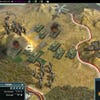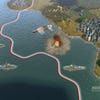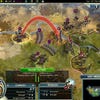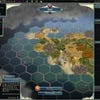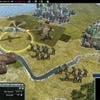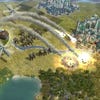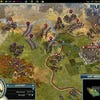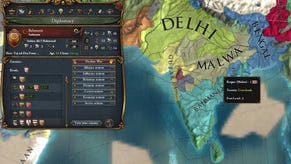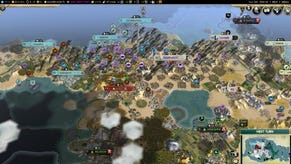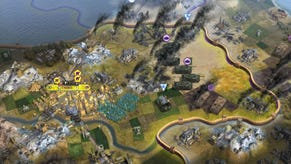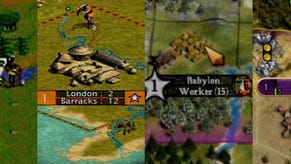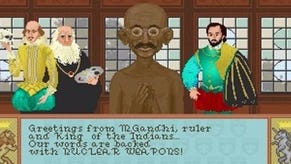Sid Meier's Civilization V
Hex and the city state.
I, like many others, have been playing Civilization games for well over a decade. Over this time I've developed several habits and ticks that have become ingrained in my play style. I habitually name my first city 'WillisCool', the second city 'WillisVeryCool' and (should any metropolis be founded near a particularly disputed border) the third: 'F***theRomans'. Or indeed any other civilisation I wish to textually bait. Civilization V, however, horror of horrors, does not let you rename cities.
This caused great pain and anger during my first turns within Firaxis' latest. It was such a break with tradition that my first city had been forcibly called Paris that I physically shook with emotion. Oddly enough, this was a pattern that would continue on a larger scale throughout repeated sorties in Civ V's hexagonal worlds. The game's core concept seems to be to shake you out of accustomed patterns of play, erasing your accustomed Civ-building 'racing line' and insisting that you come at everything from a slightly different angle.
Civilization V isn't simply piling in a barrage of new features and calling it a sequel. In fact, it's actively removing recent additions to the canon. Religion is out on its arse, while many of the features added in Civ IV expansions are similarly erased. This iteration is all about looking deeply at the features that form the bedrock of Civ, yet are so often skimmed over by players or simply left to sustain themselves in rarely frequented menu screens. It's about repackaging the more bewildering things into something palatable, and ensuring that the player is tooled-up and informed enough to deal with them.
As a Civ player I've always been lovingly bewildered and somewhat out of my depth: forever proud of building the Sistine Chapel, yet somehow blind to the starving millions. At some point, Firaxis must have put a Civ player like me in a blank-walled room and asked him politely what he didn't really understand but pretended to anyway in social circles and on internet forums.
He'd have said things like: the way individual tiles work, which style of government he should choose and the use and abuse of luxuries and resources. If he's anything like me, then he'd also reveal a slight unease when it came to naval manoeuvres - and given time, in that small white room in Maryland, he'd break down and through incessant tears admit that he's totally rubbish at combat, and especially crap at keeping track of his myriad of upgraded units.
Civ V soothes these worries. Not by evaporating them, but by explaining them better and giving you clear reasons to engage with them, pulling their roles into sharper focus through active use.
To explain, let's highlight something that in a previous Civ game I'd have had completely automated. Say you notice a particularly fruitful-looking resource spot where you can mine iron. First off, you'll need it within your borders - and to absorb it you can now speed the growth of your Empire by purchasing new tiles through your city screen rather than simply waiting for culture and population growth to do the job. This not only encourages a reinforced appreciation of the fruitfulness and roles of Civ's different (and newly hexagonal) tiles but will also lead you to order a worker to go and busy themselves so you can mine yourself some ore.
Automation is tucked away to some degree within the UI and it's clear that Firaxis wants you to become intimate with the individual advantages and disadvantages of your randomly assigned land-mass through the worker, previously the lowliest of your units. This is further underlined by the game's more stringent approach to resources. The amount of mounted units you can create, for example, directly correlates to the limited number of horses your nation contains - meaning that their acquisition is a necessity, yet if you have a surfeit of the equine beauties then it can suddenly be an even bigger bartering chip (or prompt for an early war) with your neighbours than before.

